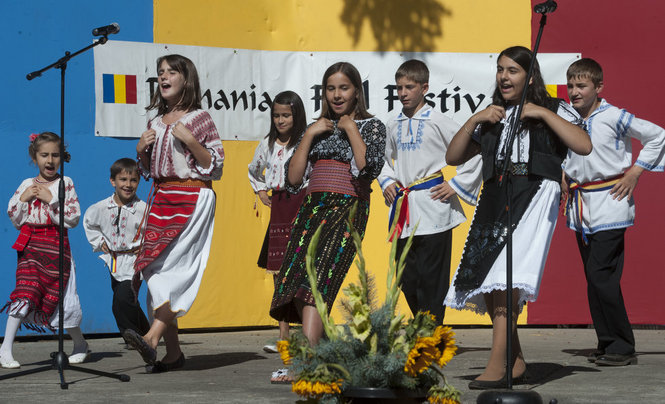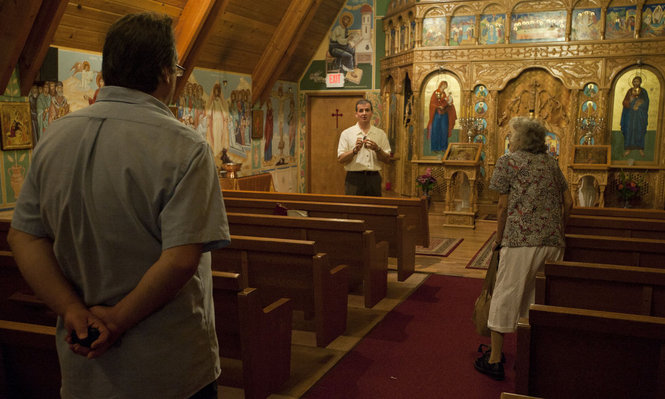By
Beside a steepled church facing Southeast Stark on Sunday, waves of animated conversation punctuated the aroma of roasting meats and the sound of lively ethnic music.
 |
| Romanian Festival of Portland. Photo: Brent Wojahn/The Oregonian. |
Romanians from along the West Coast attended, singing and clapping along to traditional songs, drinking homemade wine, and eating hand-made sausages.
"This is representative of our culture," said Doru Varvaroi, on the church's organizing committee. "What we've done for thousands of years is we sing, we dance, we pray to God."
The crowd, reaching about 250 people each of the two days, organizers said, also contained a new group of visitors. More non-Romanians than in previous years showed up, thanks to a new advertising campaign, "Party like a Transylvanian," said St. Mary's priest, Father Cosmin Antonescu .
Varvaroi said the church wanted to reach beyond the usual crowd to educate their Portland neighbors about who they are and where they come from. "They think we're Russian," he said. "We're not Russian."
"We do the festival for us and for you too," Antonescu said. "You can come and find out who we are."
The church
Antonescu, a tall, imposing figure in his long black robe highlighting a large gold pendant, came to the United States from Transylvania, generally the most recognizable region (Dracula's home territory) in Romania, a European Union country sharing borders with Ukraine, Hungary, Serbia, Bulgaria and the Black Sea. Nearly 90 percent of the nation is Orthodox Christian.
He and his wife, Camelia, have seen a diverse selection of the U.S.: first Detroit, then a city in Ohio, and now three years in Portland.
 |
| St. Mary's Church. Photo: Brent Wojahn/The Oregonian. |
"The church in the United States is more complex than it is in Romania," he said. "In Romania, it satisfies the religious needs of the people.
"Here, it represents not just faith but all components of the human being."
The Othodox Christian Church is a place for Romanian transplants to speak their familiar language, share native meals, play cultural music, dance traditional dances, he said.
"We like to socialize a lot," Varvaroi said. "A lot," he emphasized. "Romanian parties are like Greek parties: We're loud."
The festival
While the main entertainment, a Romanian dance troupe from Ohio, had to cancel, Romanian singers belted traditional folk and modern songs and dancers young and old performed.
Entertainment was a backdrop to food -- whole lambs and pigs roasted on spits, mititei (sausage) and sarmale (meat wrapped in pickled cabbage leaves).
Drink was Romanian beer and wine made from grapes picked by the parishioners and Father Antonescu, said Michael Oros, who has made a crisp white wine for the event for the past five years.
Parishioners make the wine used in services, Antonescu said. His favorite is a floral red.
Homemade wine is typical in Romania, said Oros, who grew up in Romania picking his grandmother's grapes for wine.
"In Romania, it's made and consumed in the same year," he said. While that's not long to ferment, the fresh fruitiness offsets the spices in the meat dishes, he said.
"Everything I learned came from my great-grandfather," Oros said. "We grow up with it, and we pass it on."
